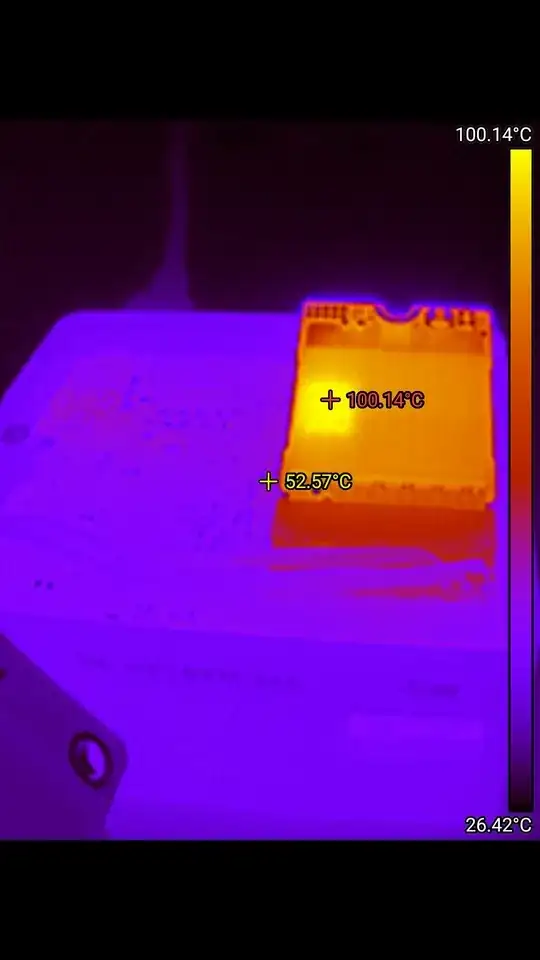I have a Samsung PM991a NVMe SSD, and during idle it's pretty cool (around room-temperature).
However, during filecopy (10ish GB total size), it gets pretty warm (ie. HOT):
Is 100 °C considered too hot for an SSD? I don't mind having it, BUT I want my data safe in case of this temperatures when I'm copying files for longer periods of time (this is 1TB size, so I can copy files for half an hour or even 1 full hour)?
So in a short simple question: can an NVMe SSD survive 1 full hour at 100 °C without data-loss, or it's way above its limits so I can only have 50-50 chance?
